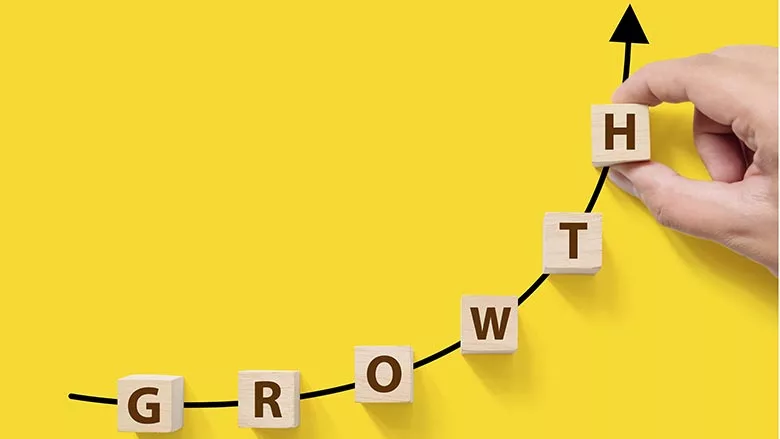How Fostering a Culture of Gratitude Helps Your Restoration Business Grow

Photo credit: marchmeena29 / iStock / Getty Images Plus via Getty Images
“Gratitude is not only the greatest of virtues, but the parent of all others.” Marcus Tullius Cicero
Be honest – How often do you say “Thank you” in the course of a day? Think about your interactions with your co-workers, your customers, your referral sources, adjusters, TPA staff, claim reps at the carriers you work with and everyone else you come in contact with during your busy day. Some people say these two incredibly valuable little one syllable words without even thinking about it and others don't say them nearly enough.
Aside from the intangible value of expressing gratitude by saying “thank you,” there's also measurable value. I recently read a study by Boomerang (a Gmail add-in tool I've been using for years) on this topic. According to their study, emails that included some form of a thank-you had a significantly higher response rate. The study analyzed over 350,000 email threads and found that emails with “thanks in advance” had the highest response rate at 65.7%, compared to 51.2% for emails without a thank-you. Interesting, right?
The point is really about culture in your company. I truly believe that employers should find things to thank their team members for and team members should be reciprocating by showing their appreciation. Let's not take each other for granted – bosses with the attitude that they shouldn't have to thank people for just doing their job, and employees feeling like they shouldn't be thankful to the boss for providing a job, a raise, a bonus, a holiday party or healthcare because they simply deserve it is just wrong (in the world according to Scott LOL).
Sometime ago, I found that I was annoying myself by replaying a Barney song in my head, Please and Thank You. My oldest son would listen to Barney repeatedly. As the song would play repeatedly in my head 20 years later, it was in the context of observing people and organizational culture.
Around this time Jon Issacson, Author, Contractor, Podcaster, Instructor, reached out to me to write a chapter in a book he was working on, Be Intentional Culture, How the Small Things Enhance or Undermine Your Culture. It was without hesitation that I knew I wanted to write about using the words, “THANK YOU.”
“Thank you” is the most common and probably most used term to express gratitude. It could be a thumb up, pat on the back, or your favorite thank-you emojis in a text. The point is that gratitude is an important attitude and skill and can be fostered and developed with the use of “Thank you”.
Fast Forward, and I was speaking to an industry colleague and friend, Scott Miller, The Growth League, who offers coaching and runs a Sales Coaching program. We were talking about “Thank you” on many levels: cultural, sales, and even one’s personal mental state. It can affect your relationships, referral marketing stream, and your culture, which leads to the first tip from Scott:
- Referral Marketing Etiquette: A Must-Have Skill in the Restoration Business: After the tale of two referrals, you will learn the Three Pillars and Principles. It is a skill and it should be taken seriously, as a referral is one of the greatest honors; it is not just a sale. As Scott puts it, “you’re inheriting a responsibility to uphold the good name of the person who referred you.”
-
Cultural: You can foster gratitude as a leader simply by sincerely thanking people. It can be a wide range of things from opening a door for you when your hands are full or going above and beyond. It is nice to work in a place where people smile and say thank you to each other. You can probably recall something you did for someone to be nice, or as a work project, or some other scenario, and there was no simple “Thank you”.
- Starts with the Leadership: Say “Thank you” to direct reports, colleagues, and business partners. A customer recently very sincerely thanked me. It made me feel good, happy, made me feel like I was positively impacting their life, and made me want to serve them more and better. My thought was that it was my job as they were buying from the company, and yet that thank you made my day.
- Say thank you when you get something from your employer or supervisor – anything: As my daughter went out into her first “real job” after college, a couple months into her employment she received a beautiful box of specialty cookies from her employer. I lectured her for two hours or more on the importance of saying thank you to whoever was responsible for this kind gesture.
- Overcoming disappointments and heartaches: Having a deep and sincere sense of gratitude helps you maintain perspective. In A Truly Happy New Year , we touch upon the power of self-talk. This is a good exercise to work on our sense of gratitude, which I believe can simply make individuals that are more content and us happier. It does not mean that we are not driven, want more, want to grow; it means it is not without appreciation of what we do have and have accomplished. This oozes out of us and will also impact those around our organization’s culture and us.
Wrapping up, the simple act of saying "Thank you" does more than acknowledge a job well done—it builds a foundation of appreciation and respect that can significantly shape your company's culture. It's about more than just manners—it's about creating an environment where people feel valued, seen, and motivated to give their best. As leaders, our role in nurturing this culture of gratitude is so important, not just for the immediate positive vibes it creates but for the lasting impact it has on our team's morale and our business's success. So let's not hold back on those two powerful words. Let's make "Thank you" a key part of our daily interactions, a habit that strengthens our teams and our business from the inside out. A culture that values gratitude is one that flourishes, and it all starts with us. Let’s lead by example and see the positive change it brings to our workplace.
Looking for a reprint of this article?
From high-res PDFs to custom plaques, order your copy today!









